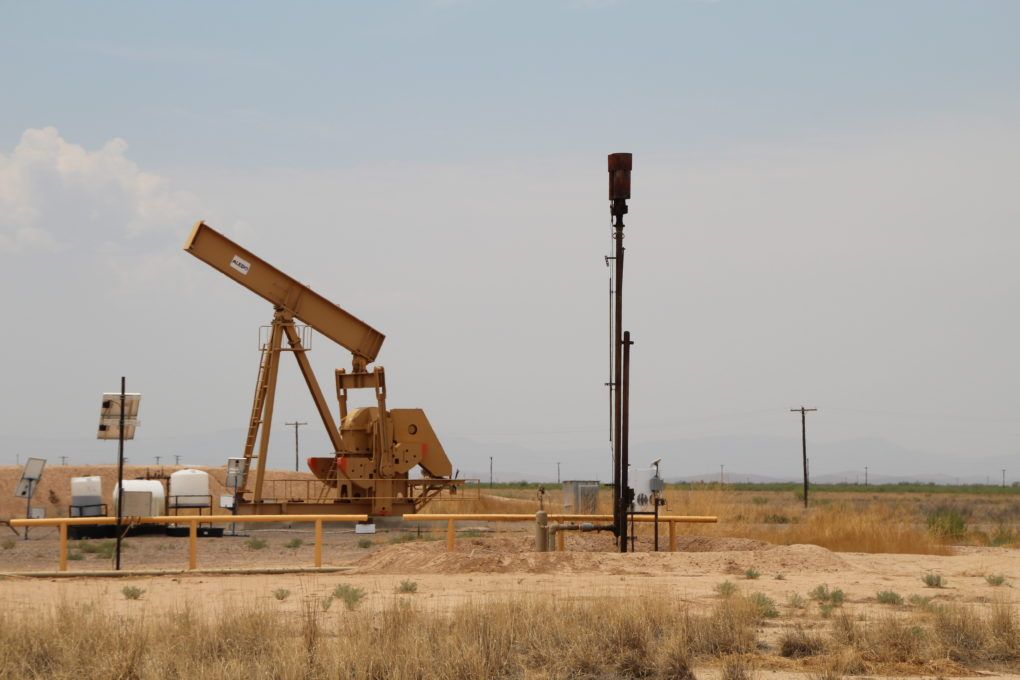Auquan's Weekly Wrap | 1st - 7th October: What you might have missed
Recap of some market activity and unique insights this week: US fracking emitting 5x more methane than expected, more businesses look to diversify their supply chain exposure to China, U.N. U-turn on their Xinjiang report

Top Themes
Permian Basin Pollution

A peer-reviewed study has found fields representing 80% of the US' fracking capacity (Permian Basin in Texas and New Mexico, the Eagle Ford Basin in Texas, and the Bakken region in North Dakota) are emitting five time more methane than previously expected, quashing outdated claims of gas being 'cleaner' or 'greener' than other fossil fuels. 'Methane is a potent greenhouse gas with over 84 times the warming potential of carbon dioxide over its first 20 years in the atmosphere, new research indicates the importance of finding and fixing pipeline methane leaks to mitigate the climate crisis.' Interestingly, this research follows a group of oil and gas companies supposedly reporting progress in carbon reduction with a 45 percent decrease in flaring intensity: (including Devon Energy, Occidental Petroleum, XTO Energy and Sendero Midstream as part of The Environmental Partnership).
- U.S. Fracking Sites Emit 5 Times More Methane than Expected
- Permian pipelines leak 14x more methane than EPA estimates
- Research shows gathering pipelines in the Permian Basin leaking 14 times more methane than officials estimate
- Oil and gas industry says it's reducing air pollution in Permian Basin. Can it be trusted?
Global Supply Chain Diversification from China

The ongoing developments for businesses worldwide pursuing a "China plus one" strategy continue. Rising political tensions with Taiwan, rivalry with the U.S. and supply chain disruptions from the COVID-19 highlight the risks of being too production reliant in the region. This supply chain reshaping has not only been reflected with Asian corporates such Satnusa and Yaskawa, but Apple also adding six new Chinese suppliers whilst cutting seven previous contractors on the mainland.
- Indonesia's Satnusa taps manufacturing shift away from China
- Japan's Yaskawa to build domestic plant to reduce China dependence
- Apple adds six Chinese suppliers, but cuts seven mainland contractors in gradual move to diversify its manufacturing network
- Dealmakers eye China divestments, rise of India and SE Asia as M&A pipeline shrinks
China Forced Labour Concerns

Following the critical U.N. report condemning 'crimes against humanity' targeting Uyghurs in the Xinjiang region last month - the U.N. council has conversely turned back on it's own report, rejecting a Western-led motion to hold a human rights debate. Whilst this could be seen a positive for Beijing seeking to avoid further scrutiny, it's been reported a clear setback for both the U.N.'s credibility as a body and Western countries' moral authority on human rights, along with their collective aim to seek more accountability.
- U.N. body rejects debate on China's treatment of Uyghur Muslims in blow to West
- China Turns Back Move for U.N. Debate on Abuse of Uyghurs
- 'Under tremendous pressure': the battle behind the UN report on China's Xinjiang abuses
- Uyghurs: EU Doesn't Single Out China in Planned Ban on Forced Labor Goods
Global Tourism Rebound

After suffering a huge blow in 2020 due to lockdowns and travel restrictions mitigating the spread of the COVID-19 - it's been very evident the tourism industry has been revitalized in 2022. However, numbers are showing how strong this rebound is, surpassing pre-pandemic levels. For example: short-term rental accommodation booked online in the EU increased every single month from February 2022 compared to 2019's months. 16.2 million tourists visited Kasmir since January, the highest number in 75 years. We're already seeing knock-on effects for services activity growth in countries only just starting to ease restrictions, as Japan posted a small expansion in September as demand recovered on declining COVID-19 cases.
- India's Jammu and Kashmir receives most tourists in 75 years
- Japan's tourism restart stirs hope of service-sector recovery -PMI
- South Korea removes Covid-19 PCR testing for inbound travellers from Oct 1
- Abu Dhabi business tourism growing rapidly amid government policies
Thank you for reading! Don't forget to subscribe to our newsletter for more!
